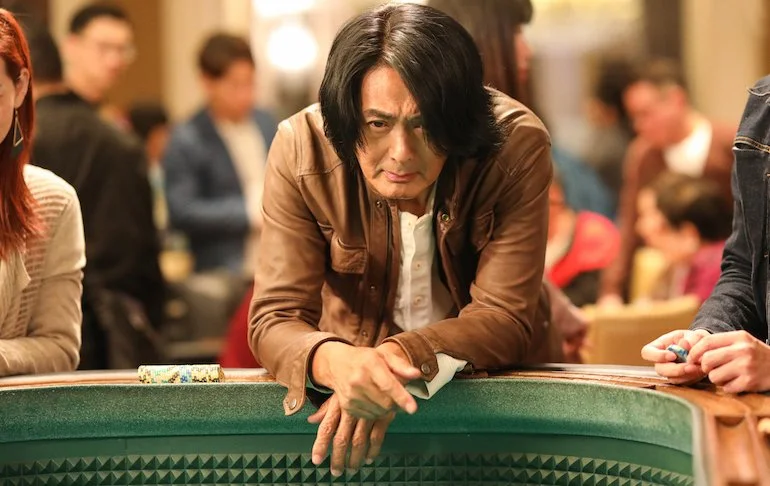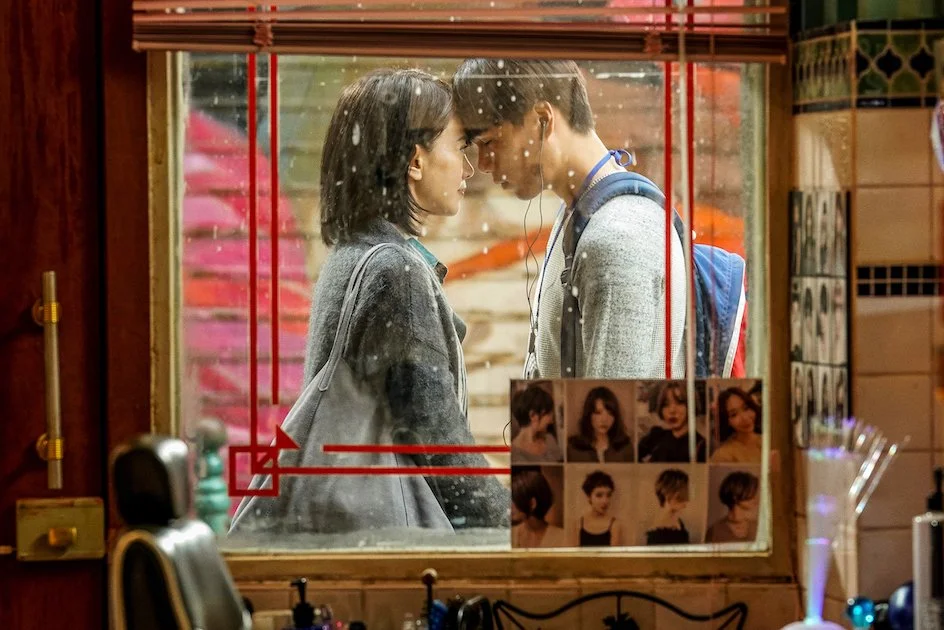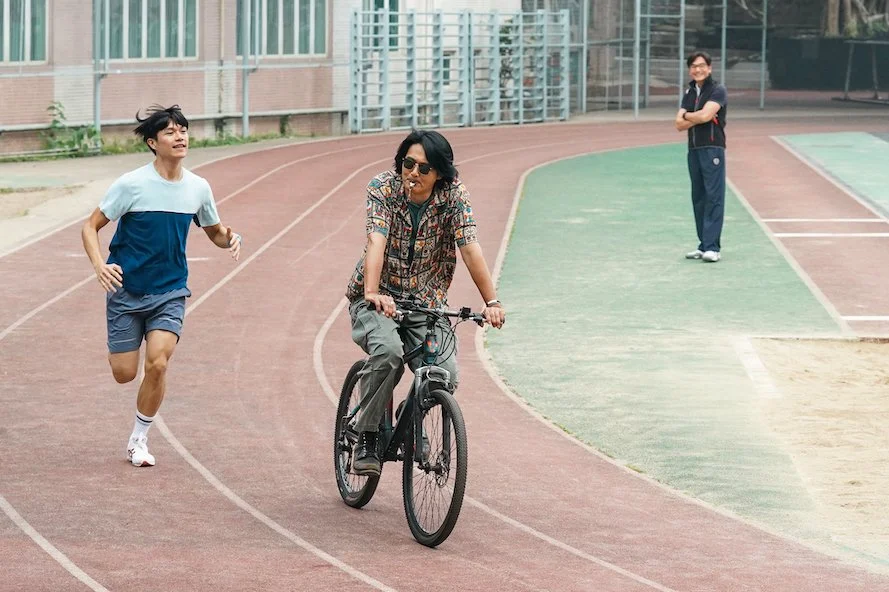Crap Shoot
Chow Yun-fat leans into the paternal stage of his career to star in Anthony Pun’s aggressively positive feature debut.
One More Chance
Director: Anthony Pun • Writer: Felix Chong
Starring: Chow Yun-fat, Anita Yuen, Alex Fong, Liu Kai-chi, Andy On, Kenny Wong, Michael Ning, Calvin Choi Yat-Chi, Amy Lo
Hong Kong • 1hr 50mins
Opens Hong Kong June 29 • IIA
Grade: B-
Get ready to strap yourself in and have a few tissues handy, because One More Chance | 別叫我“賭神” is a slice of pure uplifting hokum. Purpose-built for maximum sentimental impact, cinematographer Anthony Pun Yiu-ming (Anita, A Guilty Conscience) has turned director in what is essentially a plea for empathy and decency – with a dash of gangster drama and Chow Yun-fat coolness thrown in for good measure. Seriously, Chow sports a luxurious black mane that’s the result of either the movies’ best-ever wig work, or a flawless dye job. Either way, he’s looking as Chow as ever, and One More Chance would be a great deal more rote saccharine nonsense without him. As it stands, the saga of gambling addicted dickhead Ng Kwong-fai (Chow) rediscovering his humanity after (first) getting saddled and (later) finding a connection with an autistic son he never knew he had, Yeung (Will Or Wai-lam Far Far Away), is in many ways an old-fashioned Heartwarming Family Drama™ that hits all the emotional beats expected of it. Writer Felix Chong Man-keung (Infernal Affairs, Overheard) taps a little Rain Man, a little Forrest Gump (but not enough to make you want to gouge your own eyes out), and a lot of Hongkongness for an unchallenging quasi-weeper that works better than it should, mostly thanks to its strong cast. For those with a sweet tooth this will be a feast, but if you have issues with happy endings (not that kind, ya perv), steer clear.
One More Chance spends the entirety of its first act setting up the dramatic elements at play. We start with Ah-Fai stumbling out of a Macao casino as the sun’s coming up, moderately worse for wear and suddenly energised when one last chip falls out of a pocket, definitely not godlike. We get to know him better later, at the hair salon he runs with his pals and fellow stylists, Flower (Liu Kai-chi in his last role) and Fat Dog (Michael Ning). It’s one of those rinky-dink neighbourhood salons you see in every corner of Hong Kong, the ones with actually good stylists at a fraction of the price of fancy rigs in pricey malls. But I digress. One day, out of the blue, the heavily indebted Fai gets a visit from his Hong Kong wife (!) Lee Jik (Anita Yuen Wing-yee, He's a Woman, She's a Man, Ip Man: The Final Fight). She’s kind of pasty looking so you know what that means. Anyway, she offers Fai a much-needed $50K to take care of his son (!!) for a month while she’s on “business” and he jumps at the easy cash. Naturally, Flower, Fat Dog and regular customer and phys ed teacher Fong (Alex Fong Chung-sun) are more understanding of Yeung, and take him under wing pretty quickly.
This is something Fai has to learn. Because even though Fai intimidates, smacks and yells at Yeung, and totally ignores the routines that are so important to him, he’s quick to exploit the kid at the blackjack table and enjoy a few financial windfalls – not that he buys Yeung a piece of fruit with it. That, naturally, gets the attention of the local gang boss (Kenny Wong Tak-ban, Cyber Heist), who wants to cash in on huge loan interest, which in turn gets the attention of the gloriously be-mulletted bigger boss, Brother Shui (Andy On Chi-kit), who has a deeper connection to Yeung (!!!) than we know. Then father and son start distance running together. Long story.
Point is One More Chance is a lot of movie. Between illness, autism, a gangster history, impactful social work, a passion for running, a renewed passion for running, and finally growth and redemption there’s a lot of story that could have been trimmed and refocused. Yeung is autistic, and Fai’s short temper and ignorant impatience didn’t need the gambling spin, particularly when Macao’s distinct vivid physical spaces add so much texture to the story (Pun hands cinematography duties over to Tam Wan-kai). Yeung’s natural athleticism could have been there from the start, but as it stands it feels like a plot thread that was tacked on – one that could be tugged on along with the heartstrings in the closing frames. Flower is quite obviously gay-coded, but neither Chong nor Pun care to examine how game recognise game, and how one “other” might have a different, more empathetic dynamic with another. In short, there’s a fair bit of meat left on these bones.
But, and this is a big “but”, when you have Chow Yun-fat in your movie there’s a lot of wiggle room. At 68, Chow is as commanding a screen presence as he ever was, and his cheeky, dangerous, slick, and now paternal persona takes the mawkish edges off Chong’s script. Credit also to Or for toning down the “tics” and “nuttiness” as Fai initially calls it, of an autistic character. He’s a bit more childlike than he could be, but for someone on the spectrum not being drawn as somehow incapable is a step forward. If there’s one complaint it’s that the film could have benefitted from more Shui. Though known for fisticuffs, On perfectly balances menacing and sensitive – in what emerges as a critical player – and it looks almost as good on him as that mullet. — DEK



